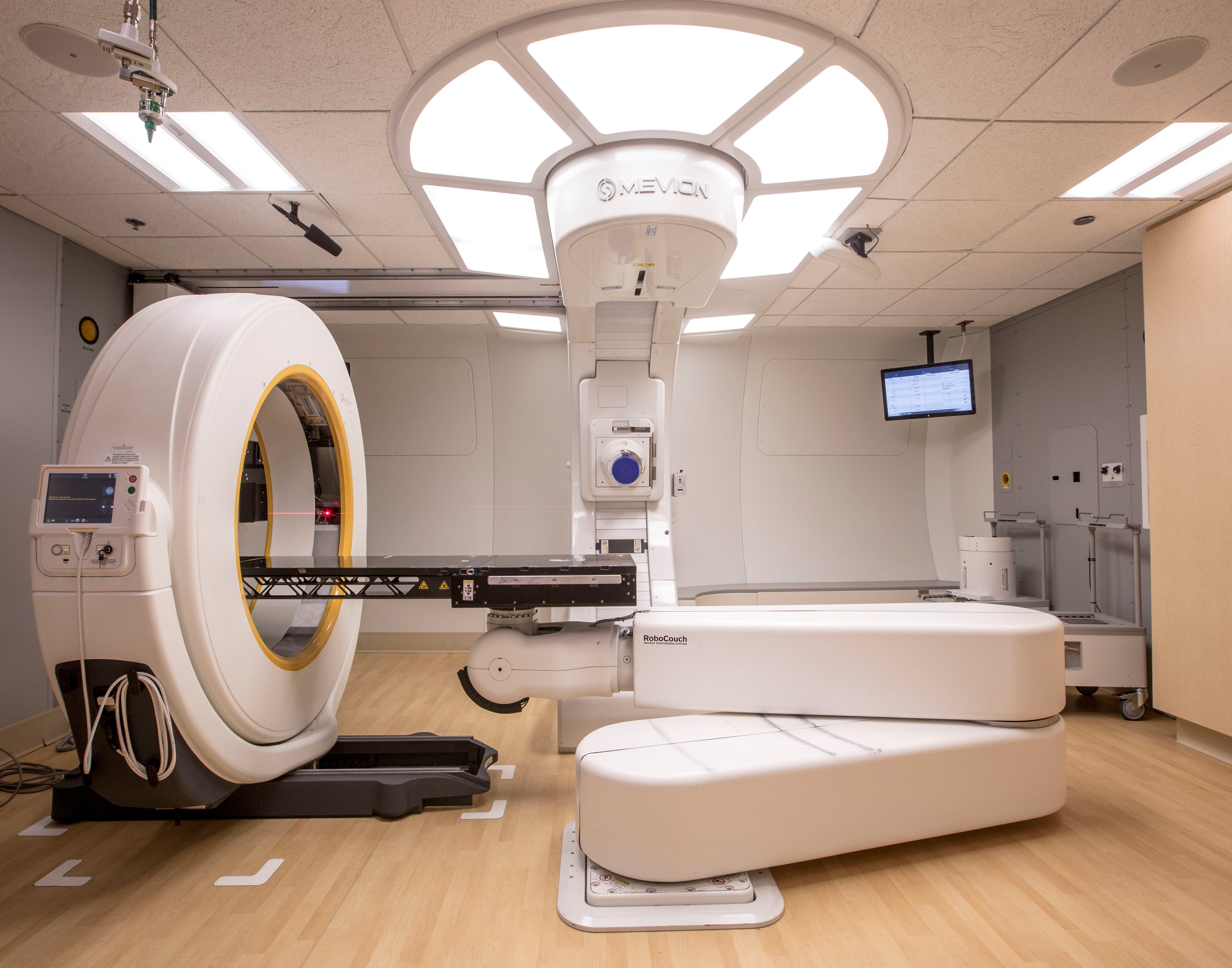Mevion Medical Systems and UF Health Cancer Center – Orlando Health, announced today the first patient treatment on a MEVION S250 proton therapy system in conjunction with Airo, a mobile, diagnostic computed tomography (CT) scanner.
The 3D CT-based localization is integrated to Verity Patient Positioning System, a component of the MEVION S250 Series, and is based on high-precision stereotactic localization and tracking technology.
This solution improves treatment accuracy and reduces patient positioning uncertainties.
The MEVION S250 is a compact proton therapy system that integrates an in-room CT scanner for high-precision positioning and adaptive treatment.

The MEVION S250 at Orlando Health is now delivering compact proton therapy treatment using an in-room CT scanner. (Credit: Business Wire)
“The stereotactic integration of in-room diagnostic CT scanning for high-precision positioning and adaptive proton therapy represents the most advanced IGRT in a compact proton therapy system,” says Joseph K. Jachinowski, the president and CEO of Mevion Medical Systems.
“Combining the diagnostic image quality of the Airo’s CT imaging with the precision of the MEVION S250 Series advances our mission of delivering transformative proton therapy. With six clinical Mevion centers and more than 10 years combined operational experience; we continue to demonstrate that Mevion proton therapy delivers high quality proton therapy treatments with successful clinical, operational and business models for cancer centers of all sizes.”
Orlando Health treated its first patient using a MEVION S250 in April 2016, and in less than four months was treating more than 20 patients per day.
The MEVION S250 Series can treat a variety of cases in adult and pediatric patients.
“Proton therapy is the most advanced treatment in radiation therapy and has allowed us to significantly reduce harmful radiation to healthy tissue, which is especially important for cancers near sensitive, hard-to-reach locations, both in children and adults,” says Naren R. Ramakrishna, M.D., Ph.D., director of neurologic and pediatric radiation oncology at Orlando Health.
“Integrating proton therapy within our cancer center has given us the ability to provide a comprehensive range of services, allowing us to keep our patients in our system to receive the best treatment possible. In-room diagnostic CT imaging for positioning and treatment adaptation allows us to provide the most accurate treatment localization with protons.”
“This is an advancement in how we can precisely position patients for proton therapy compared to conventional planar imaging methods,” explains Omar Zeidan, Ph.D., chief of proton therapy physics at Orlando Health. “This CT-based IGRT system offers superior stereotactic localization with submillimeter accuracy in addition to the capability for adaptive proton therapy.”




